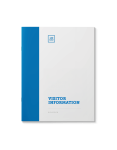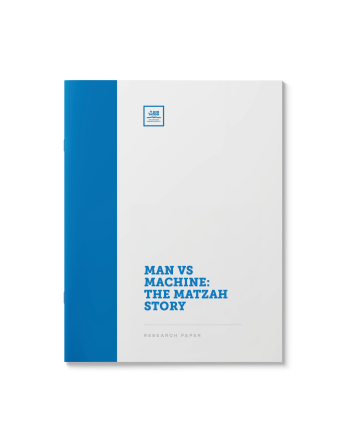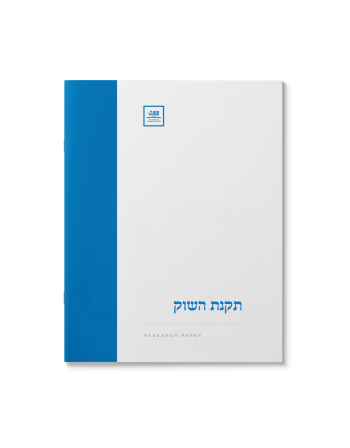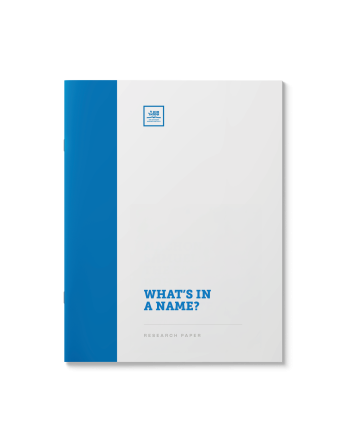Visitor Information (Sources)
$75.00
Emulating G-d’s example, we are encouraged to visit and tend to the sick. Our presence is assured by the Talmud as having the power to heal a portion of the patient’s suffering. Does Halacha provide guidelines for the visitor in the performance of this mitzva?
Prayer, too, is an integral part of this mitzvah. What particular prayers should be said for their recovery? What about assisting the individual in the recitation of prayers during their final moments?
| Language | English |
|---|---|
| Paper Type | Research Paper |
| Pages | 125 |
Related Products
Missing persons raise
tough questions. How long must we wait before they are presumed dead? What is
the mourning process? And may the missing person’s spouse ever remarry?
האם מותר להניח פרחים מעל ארון או קבר המת? הבנה יסודית בהגדרת האיסור והטעמים שלא ללכת בחוקות הגויים, מביא אותנו לסכם את שיטות הפוסקים בדין הנחת הפרחים.
לא טוב היות האדם לבדו. סקירה על דבר משמעות טובת האדם והתועלת שנוצרה על ידי בריאת האשה, על דרך הפשטני והמדרשי. עזר כנגדו.
Guidance from contemporary Poskim on the permissibility of contraception. Reviewed by a Moreh Hora’ah.
A comprehensive examination of the ancient promise that those who attend a bris are forgiven of all their sins. Where did the legend start? To whom does it apply? And how seriously do we take it today?
Without question, our prize possessions are the children we raise, and it is they who remain our legacy after we depart from the world.
Traditionally, children pledge funds to tzedakah and perform other good deeds in the merit of their deceased parents and loved ones.
What are the legal and philosophical arguments in defense of the idea that the deceased may enjoy the merits accrued by the good deeds of others? What if the individual was less-than righteous? Can the tzedakah by community members benefit their soul as well? What makes Yom Kippur a most propitious day to pledge tzedakah for the deceased?
Were Jews historically buried in their own cemeteries? Why may
gentiles not be buried in a Jewish cemetery? This paper includes a review of a
number of ancient Jewish cemeteries around the world.
מנהג העולם לברך את החתן והכלה בברכת ׳מזל טוב׳ תיכף אחר שבירת הכוס תחת החופה. אלא שיש וקראו תגר על מנהג זה מחד, ויש שיישבו את המנהג מאידך. מזל טוב?
Why reducing the sanctuary of the soul to a pound of ashes is an unforgivable sin.
מסתבר שכולנו בקיאים בתורה, או ליתר דיוק – היינו. אכן, במעי אמו, מלמדים להעובר כל התורה כולה. אלא כי רגע לפני צאתו לאויר העולם, בא המלאך ומשכחו. מהי אפוא מהותה ומטרתה של לימוד זו? ללמוד כדי לשכוח?
From the moment Avrohom circumcised himself at 99, the Jewish Bris has been the pivotal act of Jewish identity throughout history. It is at this moment that a Jewish boy is given his name. Yet when a bris must be delayed for medical reasons, can the parents give him his name anyhow, or must the boy remain nameless until the Bris takes place?
“Either way, they are My children” [Talmud].
Blood is thicker than water, they say. The bonds of family are the anchor of an emotionally and spiritually healthy life. But what happens to these relationships after one passes on? Do we “meet again on the other side”? Do families stick together in the hereafter? What about teachers and their pupils? Is this contingent on whether the two are buried in close proximity?
Do the souls of the departed maintain a relationship with those left behind? Do they relate to and empathize with the trivialities of our corporeal existence? Does prayer at their grave-site invoke merit on their behalf?















